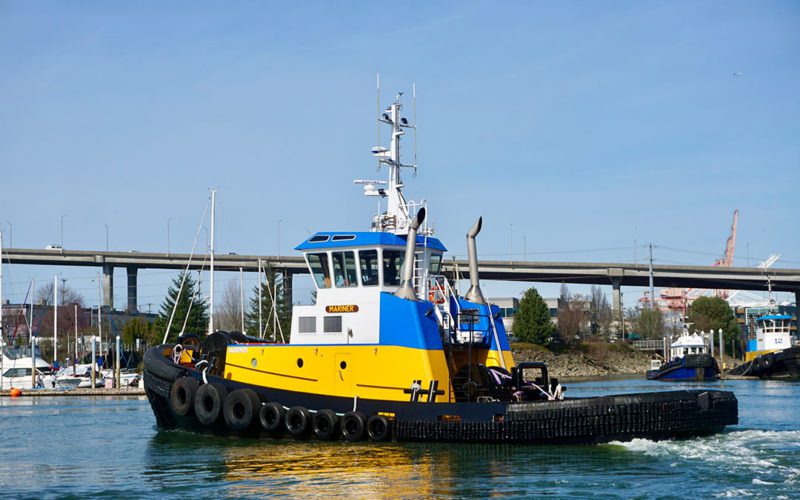
Subchapter M inspection fees would drop for most operators under a plan proposed by the Coast Guard.
The U.S. Coast Guard is proposing a new fee structure for towing vessels inspected under Subchapter M that would reduce costs for some operators and sharply raise them for others.
Towing companies currently pay an annual user fee of $1,030 for each vessel whether they choose Coast Guard inspectors or a Towing Safety Management System (TSMS) option to obtain compliance.
As proposed, the Coast Guard fee for operators using the TSMS option would drop to $973 per vessel per year. But the proposed fee for inspections performed by Coast Guard personnel would increase to $2,184 per vessel per year.
“The Coast Guard is proposing these updates because we are required to establish and maintain a fair fee for our vessel inspection services and to separate the fees for inspection options,” the service said in a notice in the Federal Register announcing the proposed changes.
The towing industry has mixed feelings about the proposal.
Caitlyn Stewart, vice president for regulatory affairs for the American Waterways Operators (AWO), said the industry is pleased to see a difference in price between different inspection methods. That said, there is some question about how the fees themselves were derived.
“We have members who use the TSMS option who were surprised the fee wasn’t lower given the real difference in terms of time the Coast Guard spends inspecting a fleet of vessels,” Stewart said in a recent interview.
“And we had members who use the Coast Guard option were who disappointed to see such a sharp increase in the fee they are paying per year who don’t think they are justified based on the service they are being provided,” she continued.
The Coast Guard is also proposing fee reductions for oceangoing tugboats inspected under Subchapter I. As proposed, the fee would drop from $2,915 currently to as low as $1,850 a year depending on what inspection model is used.
Coast Guard Subchapter M rules took effect July 20, 2018, as part of a four-year phased rollout. The law requires U.S. towing vessels subject to Subchapter M to meet certain safety standards in order to receive and maintain a certificate of inspection (COI) that is valid for five years. The deadline for all vessels regulated under Subchapter M to obtain a COI is July 19, 2022.
CDR Andrew Bender, supervisor of the Coast Guard’s Towing Vessel National Center of Expertise, said the current U.S. towing fleet now stands at about 5,050 vessels, down about 10 percent from four years ago. As of early February, roughly 3,780 towing vessels have received a COI. Nearly 70 percent of operators use the TSMS option.
“We are five months out from the COI phase-in deadline and are sitting at 75 percent of the fleet,” Bender said in a recent interview. “There is a lot of room for improvement there, but on that note, we have nearly 3,800 vessels that have been certificated.”
“This demonstrates a strong commitment to safety and security by the majority of the fleet,” he continued.
The Coast Guard expects a flurry of activity in the coming months as operators seek COIs for the remaining vessels in their fleet. It’s also likely that the inspected fleet will be smaller than the current figure of 5,050 vessels as older tonnage is retired rather than upgraded to meet Subchapter M.
The Coast Guard’s rationale for the fee increase is outlined in the Federal Register notice detailing the proposed changes. The service is required by law to establish fees to conduct inspections under Subchapter M and Subchapter I. It arrived at those costs by considering, essentially, how many employees and how much staff and administrative time is needed to issue the COI based on different inspection scenarios.
For instance, the proposed cost of a Coast Guard Subchapter M inspection presumes $1,183 for inspection activity costs, $317 for travel costs, and $243 for administrative costs and $442 in indirect costs, according to the Federal Register.
The TSMS option, meanwhile, projects $408 in inspection activities, $40 in travel costs, $84 in administrative costs and $442 in indirect costs.
Coast Guard Headquarters personnel in Washington, D.C., declined to comment on the proposed rule change during the ongoing public comment period, which runs until April 11. There is no time frame yet for when the proposed rule change would take effect.

